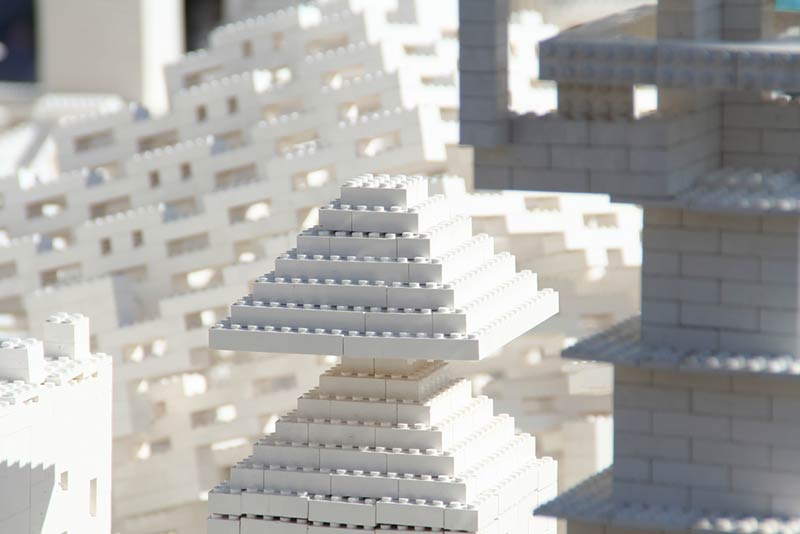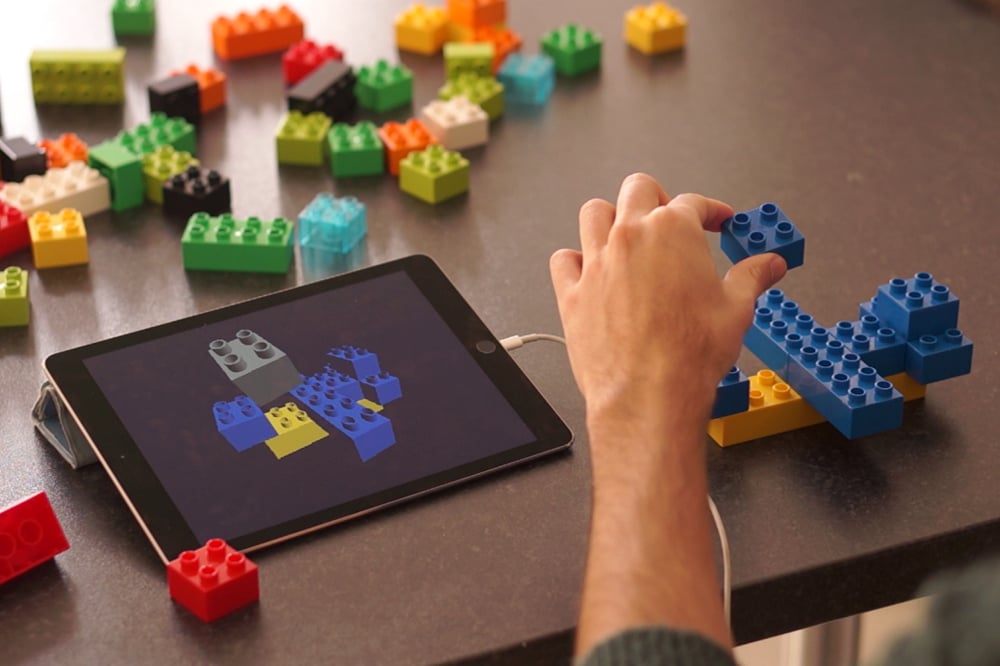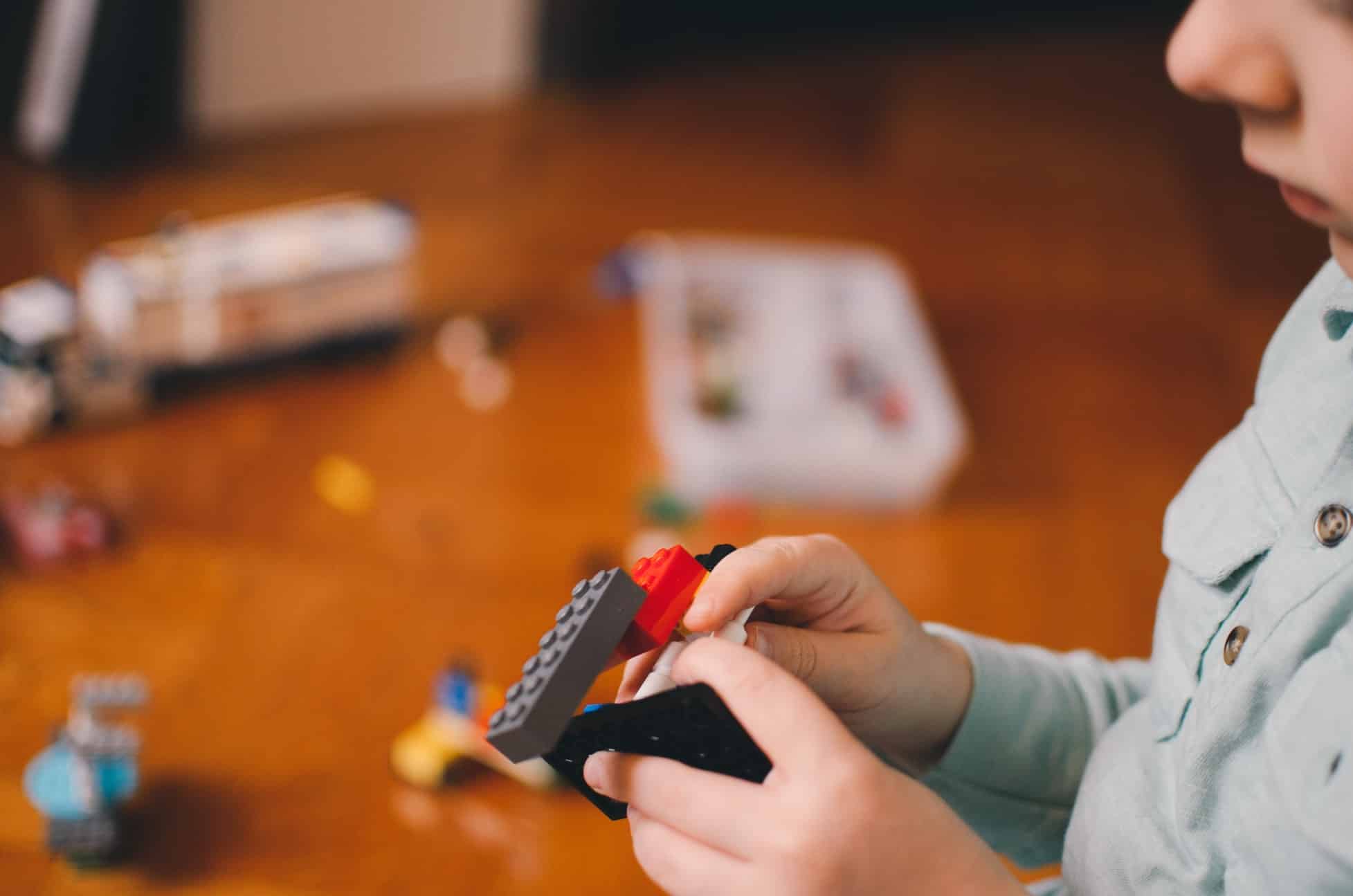Well, any parent aware of the recent trends in brain-building activities may have noticed a significant rise in the popularity of LEGO bricks and similar construction toys.
A lot of educators are steadily made aware of the learning opportunities that these interlocking bricks can bring to the minds of the curious kids.
Construction block play, especially architecture LEGO bricks, have been found to not only improve a child’s social skills but their motor functions as well.
Orienting kids to better respond to their natural surrounding is an integral part of their development phase. And construction toys are able to provide just that and sometimes even more.
So no matter what age your child is at or what ability and interest he/she possesses, we believe that construction play is for everyone.
Can Construction Toys Like LEGO Bricks Influence a Child’s Intellect?

And in our guide today, we take a much detailed and in-depth look at some of the major benefits of construction games.
-
LEGO Bricks and Social Skills
Not many parents are able to associate construction play with better social skill. And we can’t blame them for that really, because these developments are hardly made apparent and are unnoticeable at first glance. But that doesn’t mean that they are absent from the background.
-
Collaborative Activity
If you visit some of the kindergarten playrooms, you will often notice a bunch of kids huddled around a table engrossed in a LEGO project. And during this building activity, each of the kids take up the role of a professional to get the job done.
The one who oversees the structure and design is the architect, the ones bringing in the blocks mirror the supplier, while the ones setting everything in are the builders. Though these titles might feel rigid and official to the onlooker, there is a high chance that the kids are taking up multiple roles throughout and forming a collaborative.
Collaborating with others will help your child pick up new skills while at the same time passing on his own knowledge.
And if there are too many builders working on the same project, then emotions might just run high. But this is an amazing opportunity that can help develop your kid’s conflict and resolution skills.

-
Social Development Through Pretend Play
Even if your child is building on his/her LEGO blocks alone, there is an opportunity for social growth here as well.
While some kids may choose to look at their built model as a prized possession and set it up on the shelf for everyone to see. Others may have made it to just simply play with it or create a fantasy world around it.
Recent researches have shown that playing in a make-believe world or pretend play results in a more developed cognitive flexibility and improvement in the areas of empathy, problem-solving and communication.
-
Life Skills
Educators who boast a noticeable amount of knowledge in the field of pedagogy often link construction play with the development of important STEM skills. Life skills like leadership and emotional intelligence are one of the biggest factors that dictate success in the workplace.
-
Involving the Parents
Parents can also help set up educational play-dates themselves. Making the opportunity for a group construction play, your kids can get to build houses and create a small township of their own.
There they can pretend play and take up various roles as citizens and prominent towns-person.
-
Construction Games Builds Spatial and Motor Skills
As their hands reach out to test and assemble the blocks, the mind of these kids slowly start to develop on spatial abilities. They get better at grasping and reconstructing three-dimensional objects in their minds.
Understanding the space that surrounds you as you grow is an essential part of the improvement of the cognition for these young minds. Studies have also show that a child with strong spatial abilities, quite often grow up to be proficient in subjects like science and technology.
Being able to reconstruct and visualize three-dimensional objects is essential for art and architecture as well. So it really shouldn’t come at much of a surprise when educators these days talk about construction games and how they can lead a child to have amazing creative abilities as they grow.

Power Wheels – The Growing Trend. Apart from LEGO, Power Wheels have been growing in recent trend when it comes to influencing a child’s intellect and spatial skills. These battery powered toy cars are built with kid-sized realistic features (sometimes even working features) like FM Radio, power locks, etc.
Power wheels are more suited for kids between the age of three and eight, and it’s just perfect for building on their various cognitive functions. These toys will allow them to work on their motor skills as they drive around.
Power wheels are just perfect for parents who are trying to orient their kids in the motor vehicles genre. And as they get older during the teens, they might just start showing interest in assembling LEGO Technic toys like the Porsche 911 GT3 RS or the Bugatti Chiron.
These LEGO toys are just amazing when it comes to boosting a child’s intellect and spatial capabilities.
Parents often mistake spatial skills to be something which is inborn.
But let us assure you, that it can be developed through exercising their motor and creative functions as well.

-
Construction Play and Mathematical Skills
A case study in 2014, posited some math problems to two groups of sixth-graders, out of which one group spent a lot of their free time building LEGO bricks. And it was found that the kids who played more construction games did much better at math than the others.
Over time some researchers have also discovered a link between building using LEGO blocks and mathematical skill among 7-year-olds.
They held an experiment where they tested each child’s ability to build complex LEGO structures, and then they were made to take a math test after. It was found that the kids who created the more complex structures had better math scores.
Well, now you might be thinking that the kids who did better may just have a natural ability for math and building, but that’s simply not the case. The more you involve your child in construction play, the more does his reasoning skills develop.
Being able to grasp a three-dimensional construct and constantly working on it, is an amazing way of helping your child improve on his cognitive and spatial abilities.
-
LEGO Bricks Working as Math Tools
Modern-day teachers and homeschool parents have recently figured out how to use LEGO bricks themselves as a strategy to teach mathematical concepts to kids. Learning addition, subtraction and the BODMAS rule has been made extremely fun in the otherwise dull school environment.
And kids tend to familiarize themselves with the concept even faster as they find a friendlier learning tool much easier to approach and understand.
Blocks of varying sizes and numbers are great tools for ‘hands-on learning’ for subjects like maths and science.

-
Creativity and Engineering Skills
When a child is busy building blocks, not many parents will notice the amount of calculation and engineering that is going on inside that little head.
Building a complex vehicle or a dollhouse from a thick instruction booklet may be a no-brainer for any grown-up. But for an 8-year-old, every time he looks at the pictures and assembles the moving parts, he learns a bit more about engineering and creativity.
Even for a toddler of 1 year, learning to stack thick blocks or toppling and destroying an already built one, is a part of his/her learning process as well. We like to believe that every construct ‘has a cause and effect.’
So, when a stack of LEGO blocks fall, every kid learns a little bit more about the physics of gravity. And then when the kid rebuilds his/her model from scratch, he/she will add a little more stability and creativity to it.
And with every structure attempted and completed, children will become even more experimental when building their models. When one method or design works, learning new solutions in making them even better is a vital part to perfecting their spatial skills.
Blocks also help kids understand complex concepts, especially in the field of design and engineering. When it comes to building a structure, a lot of layers of abstract concepts come to work. So, when they get exposure and hands-on experience to a variety of three-dimensional concepts and objects, their cognitive abilities automatically improve.
Final Thoughts
So when children stack up those LEGO blocks and create a structure by interlocking and removing over and over again, they are building their intellect as well. The time that your child invests into these activities in his/her free time is sure to pay off as they grow up, as their cognition would surely improve at a very early age.
Hope you enjoyed our guide today.
Till next time!
Related Articles
Can Construction Toys Like LEGO Bricks Influence a Child’s Intellect?



